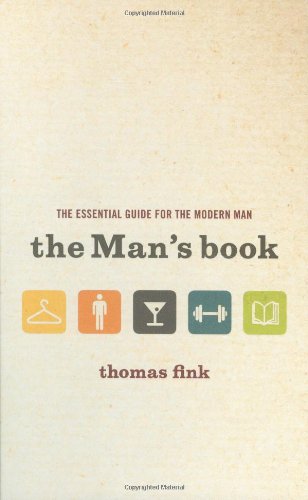Every now and then, a book comes along that makes you ask yourself: why didn’t I think of that? In this instance, I’m referring to a volume that contains within its slim covers every essential piece of information that a man is likely to need in order to be a man; a manual of manliness; an elegant bible packed with facts, and padded, but not puffed, with original observations that are always provocative, and often profound. But first let’s deal with Dylan Jones’s book.
The editor of the men’s lifestyle magazine GQ purports to have written the book described above, but, in fact, he has produced something rather different. In his introduction, he describes Mr Jones Rules as ‘the complete modern guide to being a man, a proper etiquette guide for real men … a compendium of cool, a cathedral of gentlemanliness, and a considerable mass of information leavened by a large dose of personal prejudice’. What it really is, of course, is a guide to being Dylan Jones. It doesn’t contain a ‘considerable mass of information’. Rather, it is a mass of prejudice, expressed in fluent if somewhat lazy journalese, and ‘leavened’ by the odd welcome but all-too-occasional fact.
But even this needn’t have been fatal, if the ‘prejudices’ had been witty or wise. Too often, alas, they fall into the category of the blindingly obvious. I find it a bit much to be advised, in a section on hosting a formal dinner party, ‘Don’t seat couples together’; or to read that, when taking a girl into your bedroom, ‘There should be nothing visible to remind her of your ex-girlfriends’ (do I look like an imbecile?); or – and this perhaps is the crowning platitude – to be soberly informed in the section on how to tie a tie: ‘The thin end of the tie should never fall below the fat, front end.’ No kidding.
Mr Jones Rules has its good bits. I enjoyed the author’s advice on what to say if you’re absolutely stuck for conversation with a stranger (‘So, what’s the gossip?’). I also liked his description of karaoke as ‘God’s way of letting you know you’ve drunk too much’. My overall impression, though, was not only of a book misconceived – arguably, we now live in a world where there are no real rules of social behaviour, or where, if there are, a real man is ever ready to break them – but also of one too hastily written. I lost count of the number of sections that ended with that irritating journalistic tic, the single-sentence afterthought beginning with the words ‘Oh, and…’. ‘Oh, and his jokes are funny’ (How to suck up to your boss); ‘Oh, and take a large amount of cash’ (How to behave at a lap-dancing club); ‘Oh, and dry-clean your shirt’ (How to stop a nosebleed).
God, I hate journalists, sometimes.
Which is why it’s such a relief to turn to The Man’s Book. Thomas Fink is no journalist, but rather a theoretical physicist at the Institut Curie in Paris, who has turned his scientist’s mind to the task of analysing what a man – any man – needs essentially to know, and then distilling that information into a single, sleek volume. So is his book, like Jones’s, susceptible to the charge of being obsolete, on the grounds that we now live in a world without rules? Well, no, because much of what it contains is facts, which cannot be superseded (for example, in the section on Drinking & Smoking, the author explains with characteristic clarity the difference between the various kinds of beers, from lager to Guinness, to bocks and lambics: a necessary draft of knowledge, I should have thought, for any self-respecting man). And when he turns to rules, he sticks to the old-fashioned ones, such as wedding etiquette, which even now a man would be foolish to ignore. And when, at last, Fink offers us his personal opinions – which, being less famous than Jones, he does far less frequently – they are so elegantly phrased that they seem to embody the very qualities they seek to describe. (There’s something rather effeminate, by contrast, in Jones’s chatty asides.) Consider this, for example:
A white dinner jacket should not be worn, not in the summer, not by the sea.
Or this:
A man’s dress is made remarkable only by its absence of defect.
True enough, and the same could be said, I would argue, of prose style in general. It could certainly be said of Fink’s, which is not showy, but sure.
There isn’t room here to do more than touch on the faults of The Man’s Book, as I see them. I personally could survive without knowing about the year’s upcoming astronomical events. Nor do I share the author’s interest in bandannas. And there’s no denying it’s a bit surprising to find so little mention of sex in a book designed for men. Perhaps Fink thinks that a real man doesn’t talk about sex or read about it; he just gets on with it. Perhaps he’s right. But in any case, the faults are minor by comparison with the virtues. The Man’s Book is above all useful: it deserves to sell in truckloads, and it probably will, unless of course people make the mistake of spending their Christmas money on Mr Jones Rules.
Oh, and you can quote me on that.

